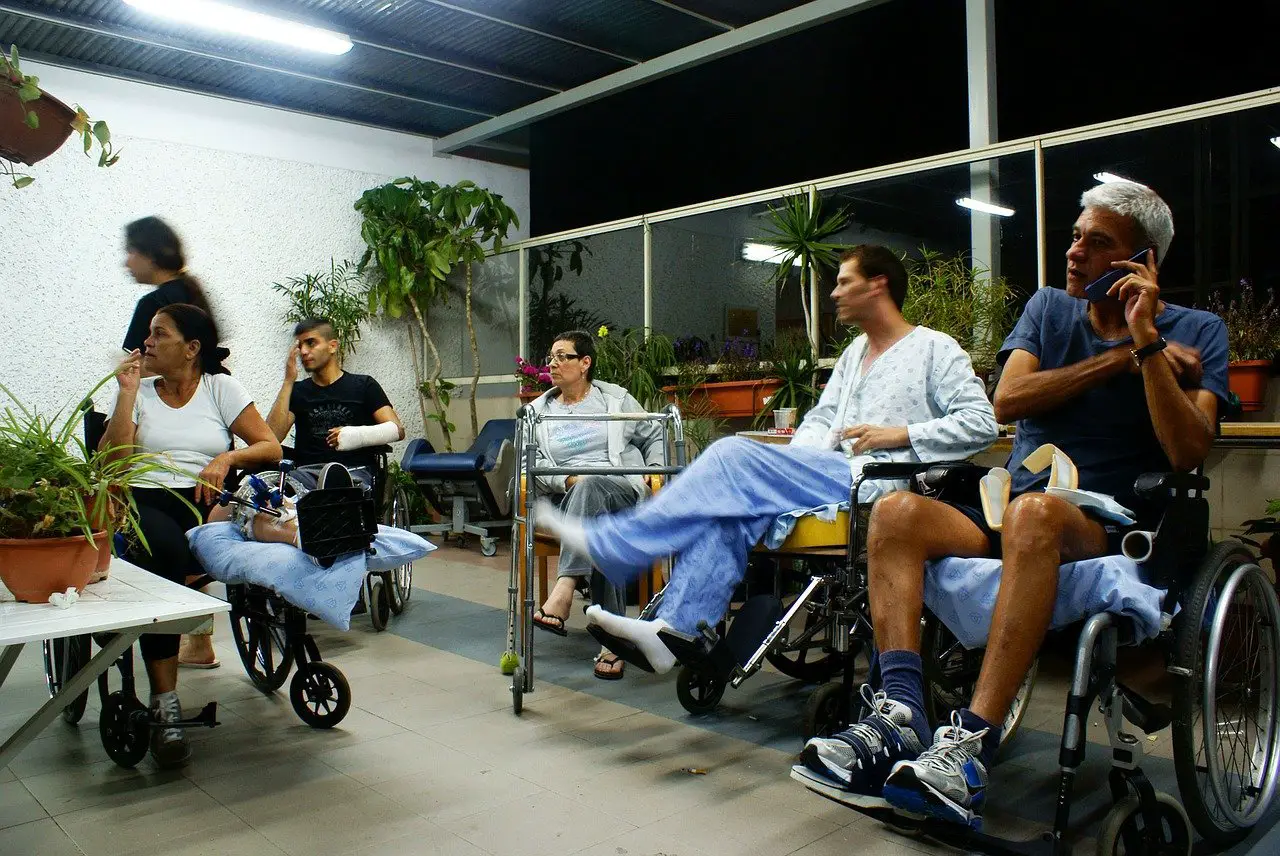Origin And International Comparison
Laws regarding workers compensation vary by country, but the Workers’ Accident Insurance system put into place by Prussian Chancellor Otto von Bismarck in 1884 with the start of Workers’ Accident Laws, is often cited as a model for the rest of Europe and later the United States. After the early Prussian experiments, the development of compensation laws around the world were in important respects the result of transnational networks among policymakers and social scientists. Thus while different countries have its own unique history of workers’ compensation, compensation laws developed around the world as a global phenomenon, with each country’s deliberation on compensation laws being informed by deliberation in other countries.
What Happens If Employers Don’t Have Workers’ Comp Insurance
If a business lacks workers’ comp insurance coverage, an injured employee may sue the employer in civil court . Some states have special funds to provide workers’ comp benefits for injured employees of illegally uninsured employers. The funds may then go after the employers to seek reimbursement for the cost of those benefits. Employers who don’t have legally required insurance may also face criminal charges and steep fines.
What Is The Uninsured Employers Fund And The Subsequent Injuries Fund
When a work-related injury or illness occurs to an employee, and the employer is unlawfully uninsured for workers compensation, the employee can file a claim with the Uninsured Employers Benefit Trust Fund .
The steps in and handles workers compensation claims when the employer has no insurance or has failed to pay or post a bond in order to pay the compensation owed to the injured worker. The UEBTF will attempt to recover the amounts paid on behalf of an uninsured employer. Please see the Resources section of this brochure for contact information regarding the UEBTF.
An employee who has a previous permanent disability or impairment and suffers a subsequent workplace injury or illness may be eligible to receive additional compensation from the Subsequent Injuries Benefits Trust Fund . The combined permanent disability must be at least 70 percent to qualify and additional eligibility requirements must be met. It is important to note that employers are not liable under workers compensation law for the combined disability of an injured worker if part of the injury is due to non-industrial factors. An employer is only liable for that portion of compensation that is owed to the worker from the later work-related injury. For further information on the SIBTF, see the contact information located in the Resources section of this brochure.
Don’t Miss: Can I Get A Replacement Safelink Phone
Longshore And Harbor Workers’ Compensation Act
This OWCP administered Act covers part- or full-time maritime employees and employers who received injuries or died while on the United States navigable waters or adjoining waterfronts, including harbor work. It provides compensation benefits for the employee and his or her family. The DLHWC is usually uninvolved in the actual compensation of the worker and serves as a more technical role, ensuring dispute resolution and delivery of benefits.
DLHWC Exclusions
DLHWC excludes individuals employed solely to perform clerical, security, or data processing employees who perform camp, club, restaurant, museum, retail outlet, or recreational operation employees not engaged in construction, replacement, or expansion of a marina those employed by suppliers, vendors, or transporters those working for temporary maritime employer those infrequently engaged in work this Act covers aquaculture workers employees who repair, dismantle, and build recreational vessels under sixty-five feet in length small vessel workers exempted with a Secretary of Labor certification those told by master to unload or repair vessels under eighteen tons net and United States government employees.
DLHWC Injury and Death Benefits
If injured, employees must notify employer, obtain medical treatment, give written notice within 30 days to employer, and file a compensation claim Form LS-203 within a year of injury. For more information, contact Longshore District Office.
Post Notices And Advise Employees Of Their Legal Rights

Employers must post required notices in a convenient location frequented by employees during working hours. The notices or posters must:
- include important information about employees’ right, including the right to receive medical treatment
- give details about available workers’ compensation benefits, and
- provide the name of the company’s workers’ compensation carrier, or the fact that the employer is self-insured, as well as who is responsible for adjusting claims.
Employers must also provide the same notice to new hires.
Don’t Miss: Grants For Dental Implants
Flying Accidents Compensation Regulations
When injured or killed while travelling on a non-scheduled flight , an employee or his or her dependants may make a claim either under the Government Employees Compensation Act or under the provisions of the Flying Accidents Compensation Regulations. Any claims made under the regulations should be forwarded to the nearest office of the Veterans Review and Appeal Board. The appropriate Regional Office of the Federal Workers Compensation of HRSDC-Labour Program should also be notified of the accident.
What Workers Compensation Issues Does The Cdi Handle
The CDI primarily deals with rating and underwriting issues involving workers’ compensation insurance. Consumers can contact the CDI with a variety of workers’ compensation rating and underwriting concerns.
The following is a list of common consumer issues under the jurisdiction of the CDI regarding workers’ compensation insurance:
- Insurer compliance with filed rates
- Rating errors
- Classification and experience modification disputes
- Failure to provide loss history reports
- Cancellation and nonrenewal notices
- Broker-agent handling
- Insurance fraud
Title 10, California Code of Regulations §§2509.40 2509.78 list detailed procedures for disputing experience modifications and classification assignments, including appeals to the CDI. Please contact the CDI through the information given in the “Talk to Us” section of this brochure when you experience workers’ compensation rating and underwriting difficulties. In most cases, we can assist consumers in resolving workers’ compensation issues regarding rating and underwriting. If it is determined that the CDI does not have jurisdiction, we will refer consumers to the appropriate state agency for assistance. Also, it is important to contact the CDI regarding any suspected workers’ compensation fraud. Fraud reports can be filed with the CDI on an anonymous basis. The more complete and credible the information, the greater the chance of apprehending and prosecuting those involved in workers’ compensation fraud.
Also Check: Rtc Careers Las Vegas
What Employers And Hr Managers Need To Know About Their Legal Obligations Under The Workers’ Comp System
By Amy DelPo, Attorney
Under the workers’ compensation system in almost every state in the U.S., most employers are required to purchase insurance that provides a range of benefits to employees who are injured or become ill because of their jobs. The system strikes a compromise between employers and employees: Employees get benefits regardless of who was at fault. In return, employers get protection from lawsuits by injured employees seeking money damages for pain and suffering.
How Is Workers Compensation Insurance Purchased
Employers must purchase workers compensation insurance from either a licensed insurance company or through the State Compensation Insurance Fund . Employers may also have the option to self-insure for workers compensation.
A commercial broker-agent can assist a business with purchasing workers compensation insurance from a licensed insurance company and can provide information regarding State Fund and self-insurance. Also, information regarding insurance companies that are licensed to sell workers compensation insurance and an online rate comparison of the top 50 workers compensation insurers can be accessed on the California Department of Insurance website at www.insurance.ca.gov.
State Fund is a state-operated entity that exists in order to transact workers compensation on a non-profit basis. State Fund competes with private workers compensation insurance companies for business and also operates as the insurer of last resort if private companies are not willing to offer workers compensation insurance.
Businesses that are interested in learning more about State Fund can contact State Fund directly by using the information provided in the Resources section of this brochure or a licensed commercial broker-agent.
For complete information on workers compensation self-insurance, contact the OSIP with the information shown in the Resources section.
Read Also: Government Jobs Redstone Arsenal
Family And Medical Leave Act
Administered by the Wage and Hour Division, the Family and Medical Leave Act requires employers of 50 or more employees to give up to 12 weeks of unpaid, job-protected leave to eligible employees for the birth or adoption of a child or for the serious illness of the employee or a spouse, child or parent.
Employees On Travel Status
As a general rule, employees are covered by the Act whenever they are travelling on duty, in Canada or abroad, as long as they are engaged in work for their department or agency at the time of injury. However, coverage is not provided during any departure from the itinerary that is for personal reasons. A compensation claim is handled by the province in which the worker is usually employed.
Read Also: City Jobs In Las Vegas Nv
Who Is Exempt From Workers Compensation Insurance
Most states have very clear laws indicating when certain individuals, such as owners and family members, can be exempt from coverage. Owners typically have to own 10%, or more, of a business in order to be exempt. States often require contractors to carry workers compensation insurance even when they have no employees. A few states have special exemptions for domestic employees, volunteer workers and certain other categories of workers.
State Insurance Fund
Generally speaking, workman’s comp insurance policies are available to employers through private commercial insurance companies or state-controlled carriers. Private insurance companies get to pick and choose which class codes they want to underwrite. They also set their own criteria for things like years of prior coverage and maximum experience modification ratings they want to quote. When private insurance companies determine that a business or industry is an excessive risk, the can say reject a submission. When no private carriers are willing to offer a policy, a business can still buy coverage through an assigned-risk program or state pool. These are known as State Insurance Funds.
In most states, workers compensation is solely provided by private insurance companies. However, some states operate astate fund program . There are a few states that operate a state-owned monopoly which prevents other carriers from offering coverage in the state. Learn more aboutworkers compensation laws in your state
Employee Has Choice Of Action

A workers’ compensation law principle recognized in the Act is that workers’ compensation is a substitute for common law action taken by an injured worker against his or her employer. However, when an employee’s injury is caused by a third party, that is, a person who is not the employer or employer’s servant or agent acting in the course of employment, the employee or his or her dependants have the right to elect
Don’t Miss: Federal Jobs In Las Vegas Nevada
How To File An Employment Discrimination Complaint
To file a complaint, contact your EEOC field office.
Many state and local governments have anti-discrimination laws. These laws may offer extra protection beyond federal law.
Some state laws:
-
Apply to businesses with only five or six employees
-
Prohibit discrimination based on whether you’re married or have children
-
Have different deadlines for filing a charge
-
Have different standards for deciding whether you’re covered
Many state laws have more protections for nursing mothers than federal law requires. State labor offices enforce these laws.
What If My Employer Doesnt Cover My Workers Compensation
The ACT Default Insurance Fund offers a safety net to injured workers who are left without access to compensation due to the actions of their employer.
The cost of providing this protection is funded by every ACT employer who does the right thing and has a compulsory workers’ compensation insurance policy. In the past, the cost to policy holders has been combined within the overall workers’ compensation fees paid by employers. Insurers must show the DIF levy amount on every premium notice.
Head to the Default Insurance Fund page on the ACT Treasury website for more.
Read Also: Federal Government Jobs For History Majors
Workplace Safety And Health
The Occupational Safety and Health Act is administered by the Occupational Safety and Health Administration . Safety and health conditions in most private industries are regulated by OSHA or OSHA-approved state programs, which also cover public sector employers. Employers covered by the OSH Act must comply with OSHA’s regulations and safety and health standards. Employers also have a general duty under the OSH Act to provide their employees with work and a workplace free from recognized, serious hazards. OSHA enforces the law through workplace inspections and investigations. Compliance assistance and other cooperative programs are also available.
Criteria Used To Develop The List Of Deemed Diseases
- Strong causal link between the disease and occupational exposure.
- Clear diagnostic criteriathere had to be little question about whether or not the claimant really had the disease that was the subject of the claim.
- The disease comprises a considerable proportion of the cases of that disease in the overall population or in an identifiable subset of the population.
Don’t Miss: Mortgage Stimulus Program For Middle Class 2021
Coronavirus: Employers Must Record Work
In May 2020, OSHA issued updated guidance for employers in response to the coronavirus pandemic. According to the new guidance, employers are required to log employees’ confirmed, work-related cases of COVID-19 on OSHA Form 300, the form used to record workplace accidents and illnesses.
While determining whether a case is “work-related” is no easy task for employers, OSHA requires that employers make reasonable efforts to do so. In its guidance, OSHA notes that COVID-19 is likely to be work-related when several cases develop among coworkers when a worker has had a close and lengthy encounter with a colleague or customer with COVID-19 or when the worker’s job duties involve frequent contact with the general public in areas with ongoing community transmission.
A particular case of COVID-19 is likely unrelated to work, according to OSHA, if the worker is the only one in the vicinity at work to contract the illness, or if the worker has closely and frequently encountered a friend or family member with COVID-19.
Read the full guidance on OSHA’s website.
State law governs workers’ compensation . Each state’s system differs in the details, but the overall structure and operation of workers’ comp is very similar from state to state. From the employer’s perspective, the main differences are the procedural rules that they must follow.
Frequently Asked Workers Compensation Questions
Q: What is a loss reserve?
A: Insurance companies use loss reserves to evaluate the monetary worth of each claim. A loss reserve is an estimated amount of money that the insurance company sets aside, or earmarks, to pay for a claim. It is usually up to a claims adjuster to set the loss reserve, utilizing judgment and experience from prior claims that are similar. Adequate loss reserves help determine how much money an insurance company must have in surplus to meet current, emerging, and future claims obligations. Insurance companies must report workers’ compensation loss reserves, along with other claim reporting information, to the WCIRB, as this information is used by the WCIRB to calculate experience modifications. Poor loss reserve practices can put an insurance company in financial jeopardy, as both overestimating and underestimating loss reserves can lead to a misallocation of funds required to pay out claims, and creates an inaccurate picture of an insurer’s financial obligations. When there are not enough funds reserved to meet future obligations, an insurer’s solvency will be negatively impacted.
Conversely, if too many funds are reserved, the experience modification may become inflated, leading to the need to unfairly raise the insureds premiums. Since maintaining insurer solvency is of high importance, loss reserves must be as accurate as possible and revised regularly based on the most current claims information available.
Q: What is a minimum premium?
Also Check: Congress Mortgage Stimulus Middle Class
When Is An Accident Work
Although the workers’ compensation agency or the insurance company is the one that will determine whether an injury is work-related, you should make your own investigation if the question is in doubt. Don’t forget that you may be better off if the accident is work-related because the workers’ compensation laws generally protect you from liability . The issue is not always clear. Consider the following examples:
- an employee is mugged in your parking lot
- an employee who is performing work for you after hours is assaulted
- an employee under stress commits suicide
How do you determine if injuries are work-related? It depends on the circumstances. The important point to remember is that if you believe an accident is work-related and that there is a chance that the agency or insurer will find that it is not work-related, you should gather any facts that you can that support your belief and be prepared to present your arguments to them.
The Nsw Workers Compensation System

The NSW workers compensation system provides support to people injured at work, including assistance with recovering and returning to work wherever possible.
Support and assistance may be provided in the form of:
- compensation for lost wages
- medical, hospital and rehabilitation treatment
- return to work assistance
- and, in certain cases, compensation for non-economic loss.
The State Insurance Regulatory Authority is the NSW Government agency responsible for regulating the NSW workers compensation system.
Broadly speaking there are three types of insurers in the NSW workers compensation system: icare self-insurers and specialised insurers.
icare is a NSW Government agency that provides insurance and care services to statutory authorities and to people with injuries under various compensation schemes.
Read Also: Government Jobs In Las Vegas Area
